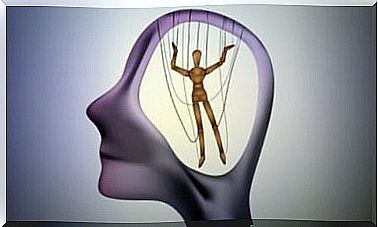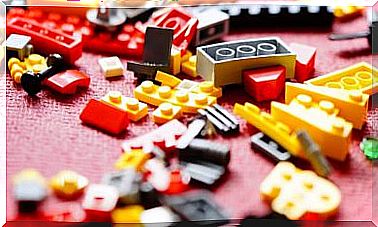10 Attitudes That Kill Our Energy

There are attitudes that deplete our energy, that drain us mentally and physically. Indeed, sometimes we get to do things, sometimes without realizing it, or we have attitudes that steal our energy, diverting it towards worries and negative states that make us feel bad.
It should be noted that all human beings are energy entities, which is the engine that allows us to work with motivation and make the most of all the opportunities that are presented to us in life.
Energy is that which drives us to do what we like and carry out actions successfully. “Energy is essential to meet our most basic needs,” says the World Health Organization.
Do you feel drained of energy, mentally drained, unmotivated, and constantly worried? Perhaps you are carrying out some poses that kill your energy. We highlight below some of those that we consider most relevant.

1. Live anchored in the past
Living anchored in the past means continually reliving what has already happened, what has already happened, it is the longing for a past time that we would like to recover. Unfortunately for many, the past cannot be changed, what has already happened cannot be changed.
On the contrary, the present and the future are in our hands. Living anchored in what cannot be changed instead of living the present, the here and now, takes away our energy and exhausts us mentally. Well, wouldn’t it be healthier to spend energy on what can be modified, on what is in our hands in the present instead of spending all that energy recalling past situations?
2. Feeling guilty
In reference to the previous section, Patti Brietman, in her work How to say No without feeling guilty, affirms that guilt robs us of energy. Therefore, accept what has happened and free yourself of the guilt that you carry on your shoulders and that does not allow you to see the future or live today.
3. Lack of assertiveness
Why is it so hard for us to say NO? Many people are used to giving in, to doing things to please. People who are often afraid to say “no” for not being contrary or for appearing selfish.
In this sense, constantly saying “yes” causes us to have time for everyone, but not for ourselves. So we forget about ourselves to please the other. Not saying “no” exhausts, it destroys our energy, since it forces us to be very busy doing things for others, leaving our needs and desires in the background.
4. Difficulty asking for help
We all know someone, perhaps the person reading these lines, who would rather use a good amount of resources to solve a problem than ask for help. Surely we know someone who would rather fail than allow someone else to join the project to move it forward.
Intelligently regulating our resources implies knowing how to delegate, ask or demand help or advice in those situations in which counting others can turn a mountain into a small mountain. This is especially so in the world in which we move; we have put aside the subsistence economy: each one specializes in the provision of a service, leaving the rest for the others.
5. Worrying too much
Many of our concerns are about events we anticipate . Thus, we cannot help but ask ourselves a question: does it make sense to worry about what has not yet happened?
People for whom worry is a habit spend a good deal of their strength dealing with these illusions. Therefore, worrying robs you of much of your energy, spending a lot of time thinking about what will happen when it has not yet happened.
6. Live in the complaint
The psychologist Joan Garriga affirms that “Complaining lowers the vitality of people”. Therefore, complaining continuously about what happens to us is one of the attitudes that deplete our energy.
The continuous spiral of complaints leads us nowhere, but instead paralyzes us.
7. Project into the future what we don’t like
Sometimes we put off plans or obligations because we are lazy. In this way, our schedule is filled with pending tasks. Frequently leaving until tomorrow the tasks that we least feel like carrying a cloud, preparing a storm of unpredictable consequences in the negative.
8. See the negative side of things constantly
If you think on the negative side of things, if you think something bad is going to happen, constantly thinking that something is going to go wrong, probably something can go wrong by having a negative attitude about it.
This is known as a self-fulfilling prophecy. Sociologist Robert K. Merton states: “Self-fulfilling prophecy is, at first, a false definition of the situation that awakens a new behavior that makes the original false conception of the situation become true . ” So, following the author’s thinking, if I think something wrong is going to go wrong, it will probably go wrong.

9. Try to control everything
Trying to control everything around us exhausts and is one of the attitudes that deplete our energy. It is a vain effort that turns you into a factory of frustration and anxiety by never reaching that desired control.
In this sense, thinking all the time about putting each tile on your life board in its place is really complicated when you are not the only person playing the game. Can we control everything around us?
10. Not letting you stop and disconnect
Sit on the couch, take a relaxing bath when you get home, watch a movie with your partner, read a book, or maybe call that friend you love to chat with so much. There are infinite ways to stop and disconnect and here we highlight its importance, because, as Maslow indicates in his pyramid on the hierarchy of human needs, resting is a fundamental part of balance.
To conclude, remember that life that travels by way of worry ends up being a journey of little value and a lot of suffering. So he laughs, cries, loves, feels. Wasting much of our time worrying, thinking about what could have been or complaining causes us to forget the present, the here and now, to enjoy every sensation.








